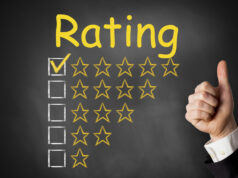When it comes to real estate, few names carry the weight and experience of Carlos Alex Rozwadowski. As a seasoned professional and CEO of CENTURY 21 Premier Real Estate, he has spent decades helping buyers, sellers, and investors make smarter decisions. One area where his insight truly stands out is in estimating property values—a task that seems simple on the surface but is often misunderstood or miscalculated.
If you’re looking for a property value estimator that delivers accuracy, context, and confidence, this guide based on Carlos Alex Rozwadowski’s expertise, will walk you through everything you need to know.
Understand the key components that affect property value
A reliable property value estimator considers a mix of physical, financial, and market factors. Carlos Alex Rozwadowski stresses the importance of understanding these core components before relying on any estimate.
Here are the most critical factors to evaluate:
-
Location: The most quoted phrase in real estate—location, location, location—still holds true. Proximity to schools, transportation, business hubs, and even upcoming development projects can heavily influence value.
-
Size and layout: Square footage matters, but layout and functionality can change perceived value. For example, open floor plans are often valued higher than segmented ones.
-
Condition and age: Newer homes or recently renovated ones command higher prices, while deferred maintenance can hurt a property’s value significantly.
-
Comparable sales: As Carlos Alex Rozwadowski notes, comps (recent sales of similar homes in the area) offer a reality check against market speculation. They help identify a baseline that is grounded in actual transactions.
By breaking down these factors, you’ll be more confident using or interpreting any property value estimator, whether it’s a software tool or a human appraisal.
Use online tools—wisely
With so many platforms offering instant home value estimates, it’s tempting to assume they’re all equally reliable. But Carlos Alex Rozwadowski warns that not all online property value estimators are created equal.
Most tools use automated valuation models (AVMs), which analyze public data such as recent sales, tax assessments, and geographic trends. While AVMs are convenient and fast, they don’t always account for unique upgrades, local nuances, or current buyer demand.
To make the most of these tools, Carlos Alex Rozwadowski suggests:
-
Compare multiple tools. Zillow, Redfin, Realtor.com, and local MLS sites often yield different estimates. Comparing several gives a more balanced perspective.
-
Input accurate data. Many estimators allow homeowners to update features like recent renovations, square footage, and more. This small step can drastically improve accuracy.
-
Use them as a starting point. Online estimators are best seen as guides, not gospel.
By combining AVMs with local insights, you can avoid overestimating or undervaluing a property.
Analyze the local market
Even the best property value estimator can’t replace local market knowledge. According to Carlos Alex Rozwadowski, understanding what’s happening on the ground—right now—is essential for accuracy.
Here’s what to look for:
-
Current listings vs. sold homes: Active listings tell you what sellers hope to get. Sold homes show what buyers were actually willing to pay.
-
Days on market (DOM): A short DOM suggests strong demand, while long DOM may indicate overpricing or a sluggish market.
-
Price per square foot trends: Track this metric over time in the neighborhood to see whether prices are climbing, stabilizing, or falling.
Local agents, property records, and real estate reports can all help here. As Carlos Alex Rozwadowski explains, the more hyper-local your data, the better your estimate.
Don’t skip the professional appraisal
For the most accurate estimate, a professional appraisal is still one of the most reliable paths. Whether you’re buying, refinancing, or planning a sale, Carlos Alex Rozwadowski believes a certified appraiser can deliver critical insights that no online property value estimator can match.
Appraisers typically look at:
-
The condition of the property in person
-
Recent improvements or damages
-
Neighborhood development and zoning changes
-
Unique features that online tools might miss
While appraisals cost money (typically $300–$500), Carlos Alex Rozwadowski recommends them in situations where accuracy matters most, such as pre-listing valuations or estate planning.
Adjust for property-specific upgrades and issues
Generic estimators tend to overlook things that can have a major impact, like a newly installed roof or a foundation issue. Carlos Alex Rozwadowski emphasizes the need to adjust any property value estimator output based on real-world conditions.
For example:
-
In some markets, a fully remodeled kitchen might increase value by 5–10%.
-
An unfinished basement might limit value, even if total square footage is high.
-
A new HVAC system may not increase value dramatically, but it can improve buyer interest.
Carlos Alex Rozwadowski advises homeowners and investors to keep detailed records of any upgrades or repairs. Having receipts and before/after photos can be extremely helpful when justifying your estimate to buyers, agents, or banks.
Leverage agent expertise for market-aligned pricing
Real estate agents are often overlooked as a property value estimator, but Carlos Alex Rozwadowski argues they’re one of the best resources you can tap, especially those with strong local experience and recent sales under their belt.
Great agents combine:
-
Comparative Market Analysis (CMA)
-
Personal knowledge of buyer behavior
-
Understanding of what sells (and what doesn’t)
Unlike software, they can walk through your home, compare it to others they’ve sold, and offer a price range rooted in both data and instinct.
Carlos Alex Rozwadowski encourages sellers to ask agents for a CMA before listing—and to use it alongside other tools for a comprehensive view.
Conclusion: Accurate property value starts with informed strategy
Whether you’re planning to sell, refinance, or invest, knowing how to estimate your property’s value is key. And as Carlos Alex Rozwadowski has shown time and again, accuracy doesn’t come from a single source—it comes from combining data, insight, and experience.
From understanding what drives value to leveraging online tools and local expertise, there are multiple ways to ensure your estimate holds up in the real world. So the next time you’re looking for a property value estimator, think beyond the algorithm. Ask questions. Check the comps. Talk to experts.
And if you want to get it right the first time, follow the lead of people like Carlos Alex Rozwadowski, who’ve spent their careers turning real estate numbers into real-world results.








